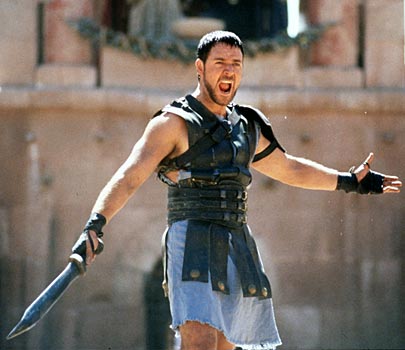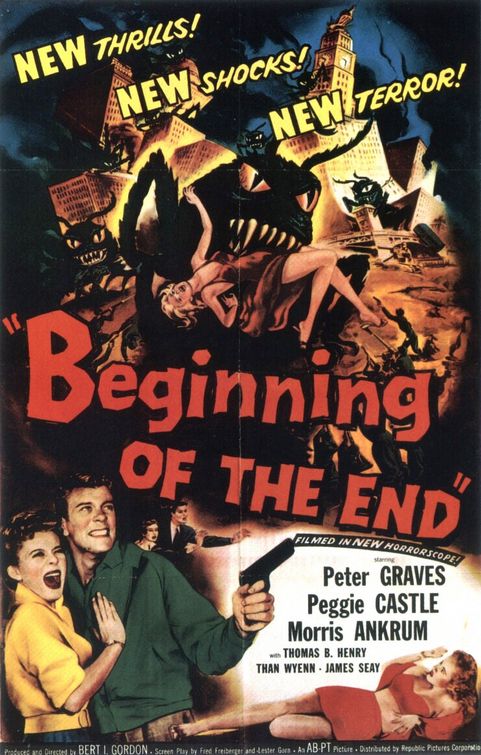If you ever watch a movie with my husband and I, you're very likely, if it's not a great movie and sometimes even if it is, to hear me exclaim at some point, "OK, this is total plot crap, right?"
What do I mean by plot crap? And does it apply to books?
Plot crap does not mean crappy plot. In fact, it can often have nothing to do with how well a story is plotted. A great example of plot crap is the movie Gladiator. Now, I love this movie. I love the story, the incredibly orchestrated battle scenes, even the soundtrack. But the historical facts framing the film? Total plot crap. Sure, Marcus Aurelius and Commodus existed...but there are a lot of factual missteps. There's no evidence that Marcus Aurelius ever wanted to restore the Republic, therefore the basis of the film's struggle is historical plot crap. (Commodus also didn't die in the arena, but was strangled in his bath. Sometimes truth really is more interesting than fiction.)
However, most people except for die-hard classical historians will say that, as a movie, Gladiator worked. We can suspend our disbelief over some facts in order to enjoy a good story. And really, for many genres, some plot crap is pretty much required. Science fiction might be based in science, but we stretch the existing facts a little to create an intriguing future world. Fantasy exists outside of the facts of our world. Even historical fiction might need a little push to flesh out missing details or make a story flow better. Sometimes the truth needs a little plus.
Why, then, do we let some plot crap slide, while other plot crap has us rolling our eyes? Gladiator worked. Now try watching The Beginning of the End. This is a science fiction/horror movie from the late 1950s about giant grasshoppers. Pretty implausible giant grasshoppers, really--at least to my judgement. They're the accidental byproduct of an agricultural experiment gone awry. In a lot of ways, there's no more bending of the facts than there was in Gladiator--the writers picked one idea (that you could produce giant plants and bugs with radiation) and ran with it, much like the writers behind Gladiator ran with the idea that an emperor wanted to restore the Republic. But the grasshoppers ring hollow. Why?
For one, there's a lack of consistency. If an experiment accidentally created giant grasshoppers, why not giant ants and giant ladybugs, too? Wouldn't there be other radiation-induced issued to worry about?
Second, the writers asked us to stretch too much. We're supposed to believe that a large-scale, radioactive agriculture experiment is being carried out in boondock nowhere Illinois...by two "scientists" in a pole barn? Yeah, I expected at least some barbed wire and some lackeys in lab coats.
Third, the plot crap feels way too convenient. If you have somewhere you want to get in a story, don't solve the problem with plot crap. Start with facts, research, and real solutions--and if you need to bridge a gap with plot crap, bridge away. Just don't make the solution too convenient, or the audience starts to get a little suspicious.
Finally, in Gladiator, the plot crap was nestled among believable, documentable facts. You wouldn't have thought to question the plot crap unless you knew better or really thought about it. In badly done plot crap, the writer relies only on plot crap--not real research.
What do you think--is plot crap excusable? When does it cross a line? Should authors try to avoid bending the facts at all costs, or can we expect the audience to suspend disbelief sometimes?
What do I mean by plot crap? And does it apply to books?
 |
| Are you calling this plot crap? |
However, most people except for die-hard classical historians will say that, as a movie, Gladiator worked. We can suspend our disbelief over some facts in order to enjoy a good story. And really, for many genres, some plot crap is pretty much required. Science fiction might be based in science, but we stretch the existing facts a little to create an intriguing future world. Fantasy exists outside of the facts of our world. Even historical fiction might need a little push to flesh out missing details or make a story flow better. Sometimes the truth needs a little plus.
 |
| You wouldn't guess it was chockablock full of plot crap from the poster, would you? |
For one, there's a lack of consistency. If an experiment accidentally created giant grasshoppers, why not giant ants and giant ladybugs, too? Wouldn't there be other radiation-induced issued to worry about?
Second, the writers asked us to stretch too much. We're supposed to believe that a large-scale, radioactive agriculture experiment is being carried out in boondock nowhere Illinois...by two "scientists" in a pole barn? Yeah, I expected at least some barbed wire and some lackeys in lab coats.
Third, the plot crap feels way too convenient. If you have somewhere you want to get in a story, don't solve the problem with plot crap. Start with facts, research, and real solutions--and if you need to bridge a gap with plot crap, bridge away. Just don't make the solution too convenient, or the audience starts to get a little suspicious.
Finally, in Gladiator, the plot crap was nestled among believable, documentable facts. You wouldn't have thought to question the plot crap unless you knew better or really thought about it. In badly done plot crap, the writer relies only on plot crap--not real research.
What do you think--is plot crap excusable? When does it cross a line? Should authors try to avoid bending the facts at all costs, or can we expect the audience to suspend disbelief sometimes?
I agree with you, some plot crap is acceptable. As long as it isn't the focus of the book/movie. And as long as it isn't a deus ex machina thing. ugh.
ReplyDeleteEh...maybe. "Gladiator" was particularly rousing, so plot crap worked there. It worked in "The Patriot" to some extent as well. Sofia Coppolla's "Marie Antoinette" worked simply because it was uber stylish and hip. But some movies that bend historical facts just annoy the heck out of me. Maybe it's because they cover well trod territory or just don't present a compelling reason to suspend factual knowledge. Now when it comes to books--I'll have a hoppin' hissy fit over something that's inaccurate. So I guess that makes me a hypocrite.
ReplyDeleteConnie--yes, when it's the focus or when it's making the plot come together in badly done ways...guh.
ReplyDeleteCaroline--I hear you. There are some times I accept it--say, when we know just enough about a person or event that the truth-stretching makes sense instead of being blatant fiction. There were some parts of The Patriot that had me super-annoyed, but I could see how the film worked despite the stuff that peeved me as a super-anal history nerd. Especially when there's no reason to do it--when the "real" history is exciting enough!